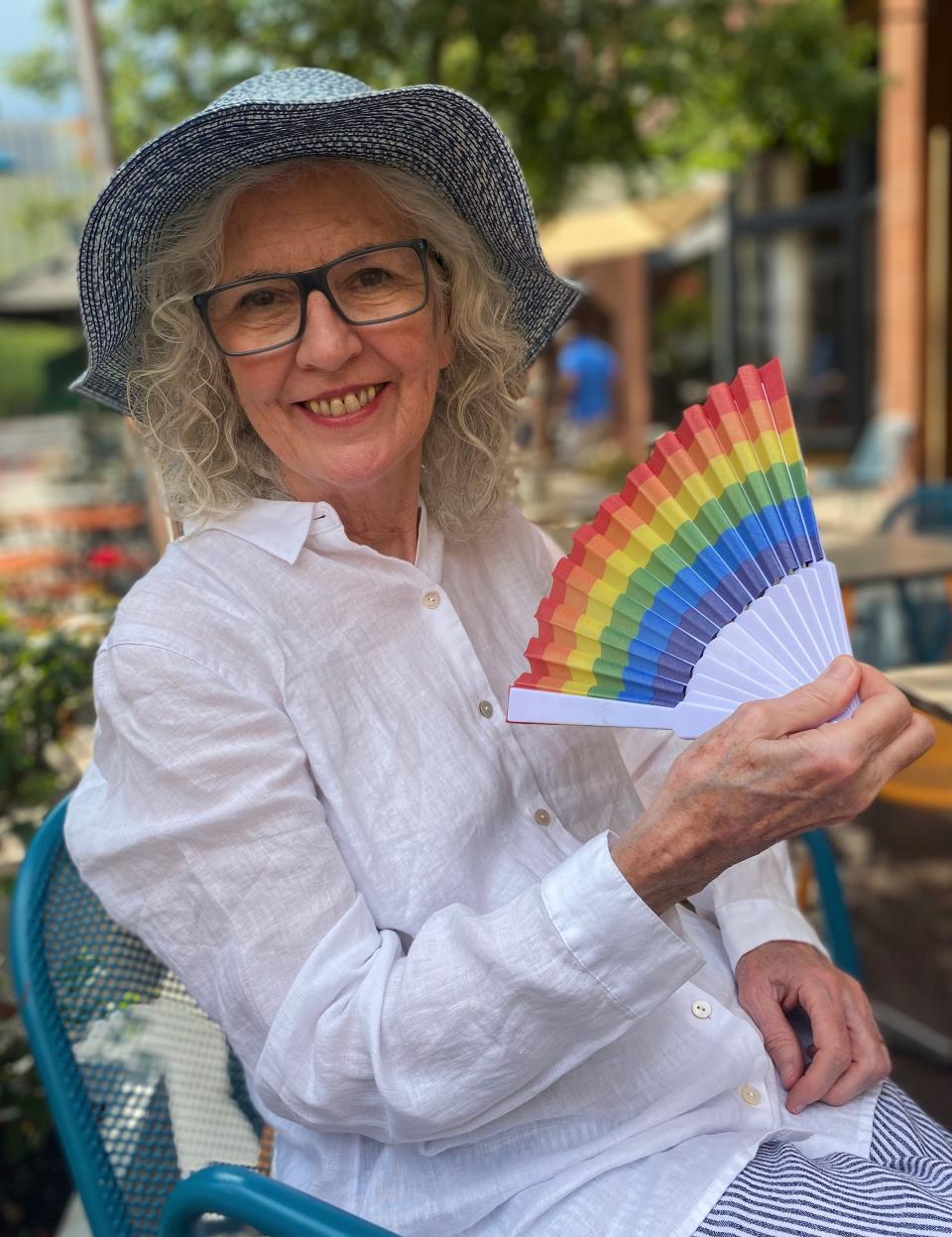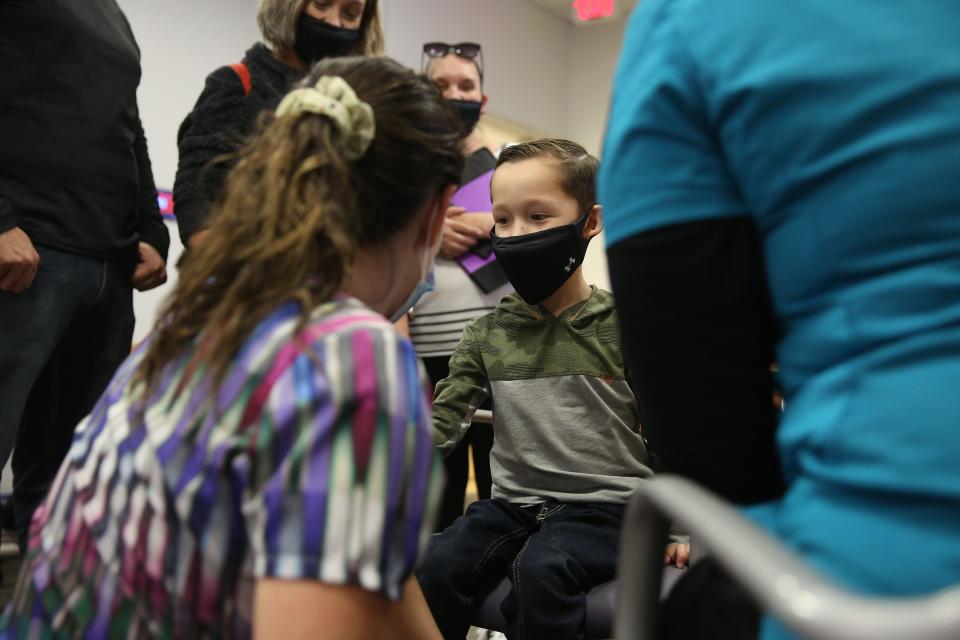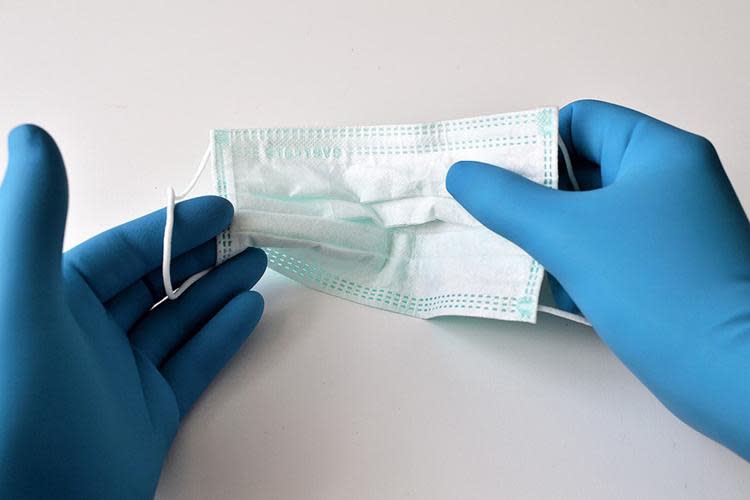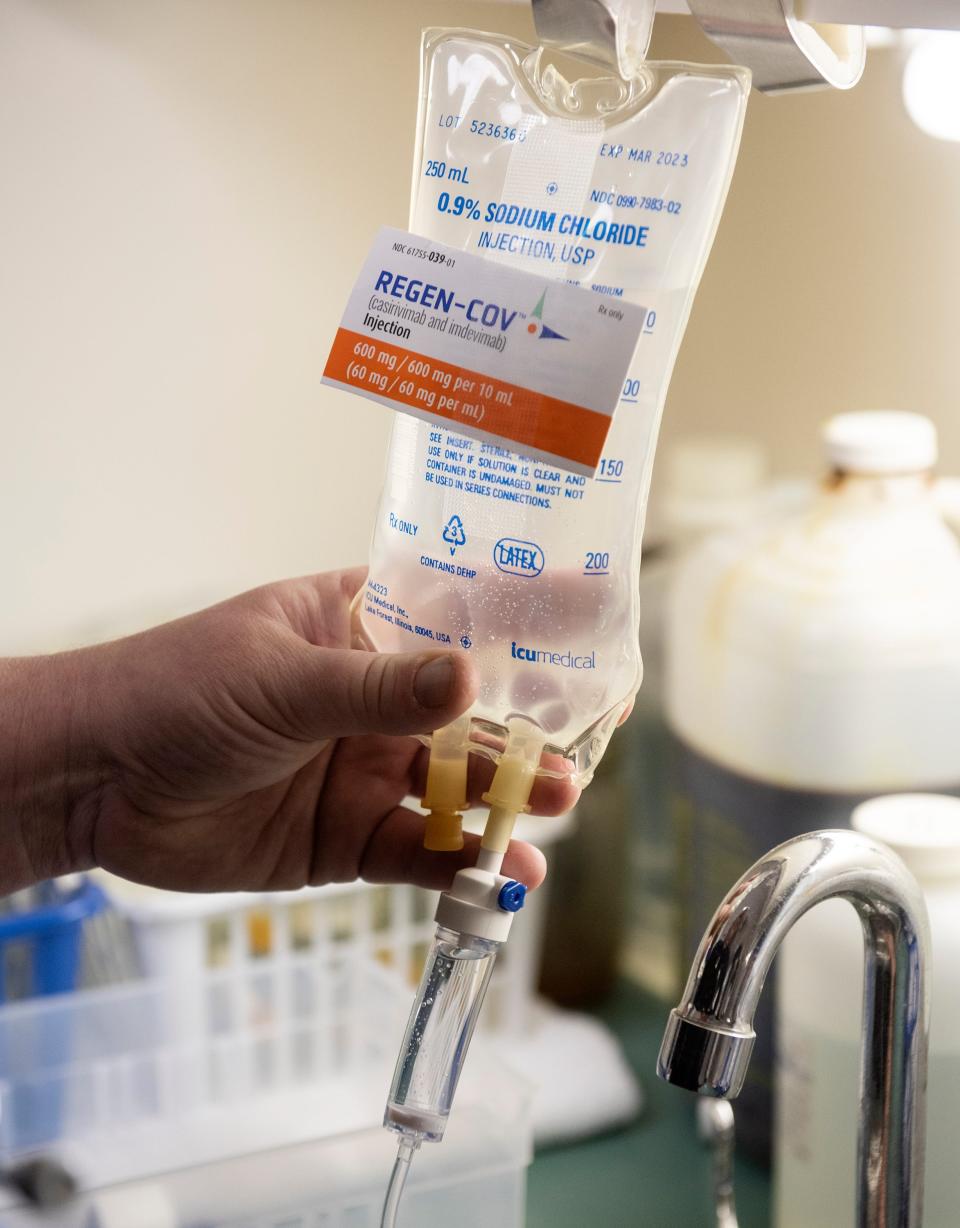Vaccination efforts for children aged five to 11 started in Chippewa County
- Oops!Something went wrong.Please try again later.

CHIPPEWA COUNTY — The Chippewa County Health Department has begun vaccinating children ages five to 11 years old for COVID-19 and encourages all parents to vaccinate their children.
According to the State of Michigan website, the Pfizer COVID-19 vaccine has been authorized and recommended by the Food and Drug Administration as well as the Centers for Disease Control and Prevention for children ages five to 11 years old. The dose is child-sized at 1/3 the size of the adult vaccine and it has shown to be nearly 91% effective during clinical trials. It was announced in early November that the Pfizer vaccine was approved for children.
Catherine Wilkerson, M.D., MPH, public health medical director at the Chippewa County Health Department, said COVID-19 in children is a major public health problem as it is the eighth leading cause of death in children five to 11 years old, has caused thousands of children to be hospitalized, many in intensive care units and requiring ventilators to breathe. She said that COVID-19 results in long-term health problems in many children as well.

“Vaccination of children is important to protect children and also to reduce community transmission of the SARS-CoV-2 virus,” Wilkerson said in an email. “The vaccine has been proven to significantly reduce symptomatic COVID, hospitalization, and deaths in all age groups, including children (five years of age) and older. Benefits of vaccinating children, as with adults, greatly outweigh potential risks. These are the findings of the U.S. Advisory Committee on Immunization Practices, known as ACIP, based on careful review of the evidence.”
Last Wednesday, the health department released COVID-19 vaccine statistics for the county:
Residents five to 11 years old: 11.9% initiated, .5% completed
Residents 12 to 19 years old: 44.85% initiated, 38.95% completed
The most common side effects are local reactions at the injection site such as soreness and redness. Systemic reactions, such as fatigue, headache or fever, occur less commonly. Reactions, when they do occur, typically last one to two days.
The Centers for Disease Control and Prevention recommends everyone five years of age and older get a COVID-19 vaccine. Children ages five through 11 years old may get the pediatric Pfizer vaccine and children ages 12 years and older may get the Pfizer vaccine.

The State of Michigan detailed that vaccine programs are rolling out at high schools, community clinics, doctor’s offices and pharmacies. Pfizer’s COVID-19 vaccine provides the opportunity to further protect your child from COVID-19. The currently authorized COVID-19 vaccines have gone through clinical trials and scientific review just like any other vaccine, including those your child has likely already received, and no standards of quality or safety were sacrificed.
“We know that parents and guardians rank the safety and well-being of their children as their highest priority,” said Wilkerson via email. “We recognize that they may decide that since their child is at low risk for serious outcomes from COVID, they don't feel vaccination is necessary for that child's individual protection. However, not only is COVID a severe illness for some children, there are many other factors to consider. From education to social development, from athletics to the arts, this pandemic has had major consequences for children.”
Wilkerson said vaccination, along with public health measures including masking, testing and distancing will bring the pandemic to an end. Children should be reassured that getting the shot is safe, has minimal pain and will protect themselves and others. Wilkerson said they can look forward to activities that mean a lot to them and they may have a classmate or a family member with a weak immune system.

In many cases, children and teens with pre-existing conditions like diabetes or heart conditions or other autoimmune diseases, or those who are taking medications that compromise their immune system, are at higher risk of complications from COVID-19 infection. The COVID-19 vaccines that have been authorized for use cannot cause COVID-19, even in those with weak immune systems. Individuals with immune-compromising conditions may get the COVID-19 vaccine, as long as they are not in one of the following categories:
Have a severe allergy to a vaccine component (i.e., one that causes anaphylaxis or requires medical intervention)
Have a history of severe allergy to any vaccine or injectable medication
Parents and guardians are suggested to talk with their child’s doctor to discuss receiving an age-appropriate COVID-19 vaccine for the child and to review individual risks and benefits.
Wilkerson explained that children spread COVID-19 the same ways as adults do and that schools are the number one setting of outbreaks.
“The higher the level of vaccination of the population, the lower we bring hospitalizations, disruptions of work and schooling,” said Wilkerson in an email when asked about how vaccinating children will help the general public. “As long as this virus is circulating, it continues to mutate. That means more variants and more waves of infection. It is crucial for everyone to do everything they can to stop the spread. We're focusing on vaccination, which is vital, but vaccination alone will not end this pandemic.”
The symptoms of COVID-19 appear to be similar in children and adults. Children with confirmed COVID-19 have generally presented with mild, cold-like symptoms, such as fever, runny nose and cough. Vomiting and diarrhea have also been reported.
Babies under one-year-old and children with certain underlying conditions may be more likely to have severe illness from COVID-19. Studies are ongoing regarding how the disease impacts everyone, including children. Health officials are advising parents to watch for symptoms related to a rare but serious inflammatory condition seen in children and linked to COVID-19, called multisystem inflammatory syndrome, also known as MIS-C. If you notice any of the following symptoms, call your pediatrician:
A fever lasting more than 24 hours
Abdominal pain, diarrhea or vomiting
Rash or changes in skin color
Trouble breathing. Call 911 if this symptom is present
Your child seems confused or overly sleepy
Be sure to let your pediatrician know if your child has tested positive for COVID-19 or has been exposed to the virus. Your pediatrician will let you know if your child can be seen in the office or if you need to go to the emergency department.
The Chippewa County Health Department is tracking and following the newest variant of concern, omicron, closely. Wilkerson said it is not known at this time if this variant is more contagious than the Delta variant or more resistant to vaccines. But so far, with each variant, Wilkerson explained that vaccinations have proven to greatly reduce suffering and death caused by COVID-19 and vaccination has saved countless lives.
Some people may not be aware of an effective treatment now available for people who have mild to moderate COVID-19 or even to protect people after they have been exposed.
“Monoclonal antibodies can be administered as injections under the skin to those at higher risk of progression to severe COVID,” Wilkerson said via email. “The Chippewa County Health Department, in coordination with Kinross Emergency Medical Services, the Region 8 Health Care Coalition and the Michigan Department of Health, has organized administration of those shots to over 100 people in the county. These are people who live or work at assisted living homes. For the general public, monoclonal antibodies are administered at War Memorial Hospital to those who meet criteria and by referral or appointment.”

On Nov. 21, the U.S. Food and Drug Administration issued an emergency use authorization for this particular treatment. Monoclonal antibodies are laboratory-made proteins that mimic the immune system’s ability to fight off harmful pathogens such as viruses. Casirivimab and imdevimab are monoclonal antibodies that are specifically directed against the spike protein of SARS-CoV-2, designed to block the virus’ attachment and entry into human cells.
The Food and Drug Administration explained in a press release that in a clinical trial of patients with COVID-19, casirivimab and imdevimab, administered together, were shown to reduce COVID-19-related hospitalization or emergency room visits in patients at high risk for disease progression within 28 days after treatment when compared to placebo. The safety and effectiveness of this investigational therapy for use in the treatment of COVID-19 continues to be evaluated.
Casirivimab and imdevimab are not authorized for patients who are hospitalized due to COVID-19 or require oxygen therapy due to COVID-19.
The Chippewa County Health Department hopes this particular treatment will become more available soon at other sites in the area.
“I want to finish by emphasizing what is meant by the term public health, it means the health and well-being of our community as a whole, as well as that of each and every member,” said Wilkerson via email. “When it comes to a pandemic, these cannot be separated. I have heard many people say, ‘If you want to wear a mask or get vaccinated it's for you and if I don't want to do those things it's my decision.’ In the case of COVID, wearing a mask and getting vaccinated is not just for any one person alone. It's for everyone.”
Parents can register their child(ren) for the vaccine online at www.chippewahd.com.
— Contact News Reporter Taylor Worsham at tworsham@sooeveningnews.com.
This article originally appeared on The Sault News: Vaccination efforts for children aged five to 11 started in Chippewa County

